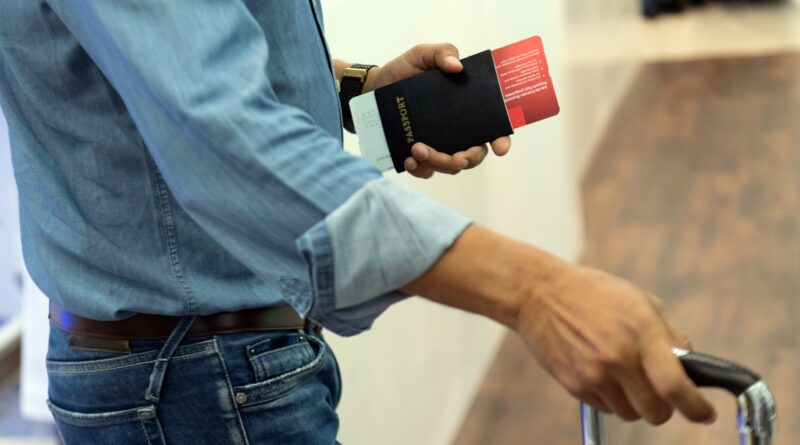Rules for Brits travelling to the Schengen Area from January 2021
A recent YouGov survey has shown that few Britons know what will change for them when the Brexit transition period ends, on 31 December 2020.
Only 21% of respondents said they felt “very” or “fairly” informed about changes they will face when travelling to the EU. About two thirds (64%) said they were “not very clear” or “not at all clear” on the new rules, and 55% did not know whether they would need a visa to enter the countries of the Schengen area.
In a series of notices to prepare for the end of the Brexit transition, the European Commission has provided some clarity.
Not covered by the withdrawal agreement
As of 1 January 2021, having left the EU, British nationals will be treated as “third country nationals” when they enter the Schengen zone.
Britons who are not resident in the EU by 31 December 2020 will be subject to checks by border authorities. These will verify the passport, which has to be less than 10 years old and have at least another 6 months of validity, the purpose and the length of stay (e.g. through the ticket and accommodation booking), and the proof of sufficient funds. The passport will be stamped.
Britons will be able to stay visa-free in the Schengen area for a maximum of 90 days in 180 days (a calculator is available on the European Commission website). The 90-day period applies to the entire Schengen zone, not a single country.
The European Commission has requested member states to notify whether they will require a visa for Brits carrying out a paid activity during short-term stays.
For stays of more than 90 days, a national visa is required.
According to the Commission guidance, Airport Transit Visa (ATV) will also be necessary when passing through airports in the Schengen area (e.g. for a flight London-Frankfurt-Lagos). This change concerns non-EU citizens, including family members of EU nationals who have settled status in the UK, as a UK visa or residence permit will no longer exempt them.
Britons will have to use “all passports” or “visa not required” lanes at terminals. They won’t be able to use e-gates, as these are reserved to passengers from the countries of the EU, Norway, Iceland, Liechtenstein, and Switzerland.
From 2022, however, the introduction of the Entry Exit System (EES) will make the use of e-gates possible without the need to stamp passports.
Meanwhile, each member state can authorise the use of e-gates upon exit, if the passenger has entered the Schengen area in the same country and the passport is stamped.
In the second half of 2022, the EU will also introduce the European Travel Authorisation and Information System (ETIAS). This will require visa-exempt non-EU citizens to apply for a travel authorisation online before their trip and pay a fee of 7 euros.
Only 9% of respondents in the YouGov survey knew that British citizens will have to pay for this ‘electronic authorisation to travel’.
Britons living in the EU before the end of the Brexit transition
The situation is slightly different for Britons who live in the EU by the end of the Brexit transition, as their rights are protected under the withdrawal agreement.
British in the EU will have to apply for a new residence document in the country whey live and will be provided with a uniform card stating that it is issued in compliance with the withdrawal deal. This document can be used at border control.
Alternatively, they can provide evidence that they have exercised free movement rights before the end of the Brexit transition, for example showing a certificate of application for the residence document or an old permanent residence card.
In all these cases, the passport will not be stamped and the verification of purpose, length of stay, and sufficient funds will not be necessary.
Once the application deadline for the new residence document has expired, however, only residence cards issued under the withdrawal agreement or certificates of application will be accepted.
The new residence document exempts non-EU family members from visas in other Schengen countries.
British beneficiaries of the withdrawal agreement will also be exempt from the EES and the ETIAS. But they will still have to use the “all passports” or “visa not required” lanes at terminals, the Commission said.
UK nationals who move to the EU after January 1st 2021 will have to request a residence permit according to EU or national law and can obtain the status of long-term resident after 5 years of continuous residence.
The Schengen area comprises 26 countries. Ireland is not part of it, having opted out with the UK to avoid a border with Northern Ireland. Croatia, Cyprus, Romania and Bulgaria are also not Schengen members, while Switzerland, Norway, Iceland and Liechtenstein have joined even if they are not in the EU.
Some EU countries have bilateral arrangements with non-EU states on visa waivers and the UK might pursue similar options in the future.
Claudia Delpeo © all rights reserved
Image by Ahmad Ardity from Pixabay.
Europe Street News is an online magazine covering citizens’ rights in Europe. We are fully independent and we are committed to providing factual, accurate and reliable information. We believe citizens’ rights are at the core of democracy and information about these topics should be accessible to all. This is why our website and newsletter are available for free. Please consider making a contribution so we can continue and expand our coverage.




